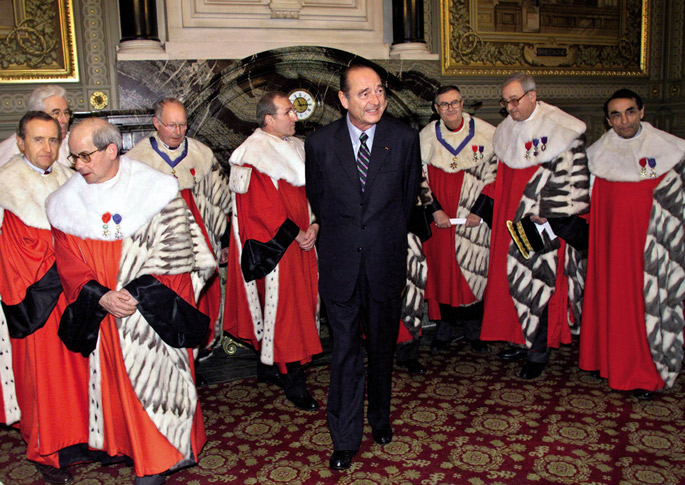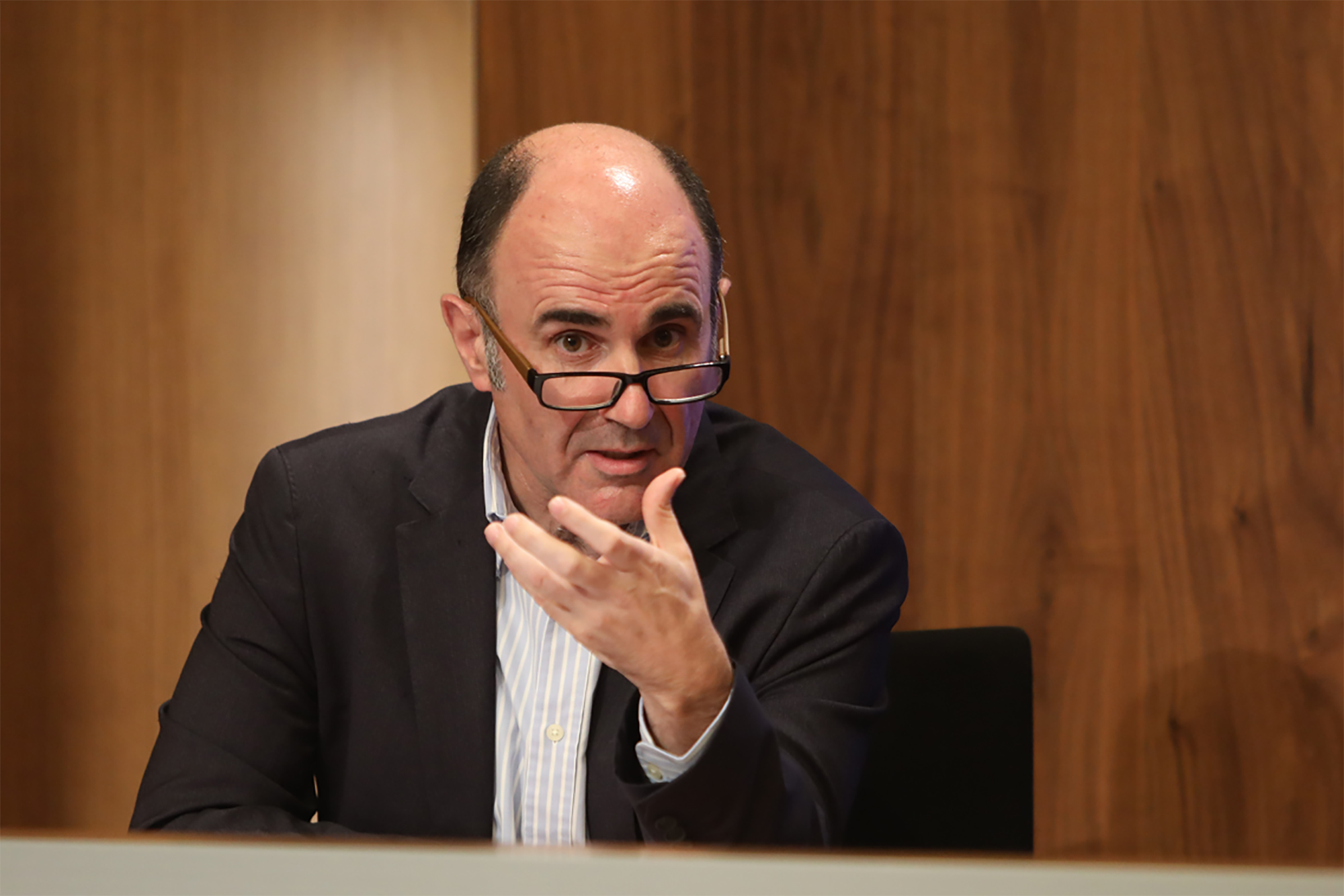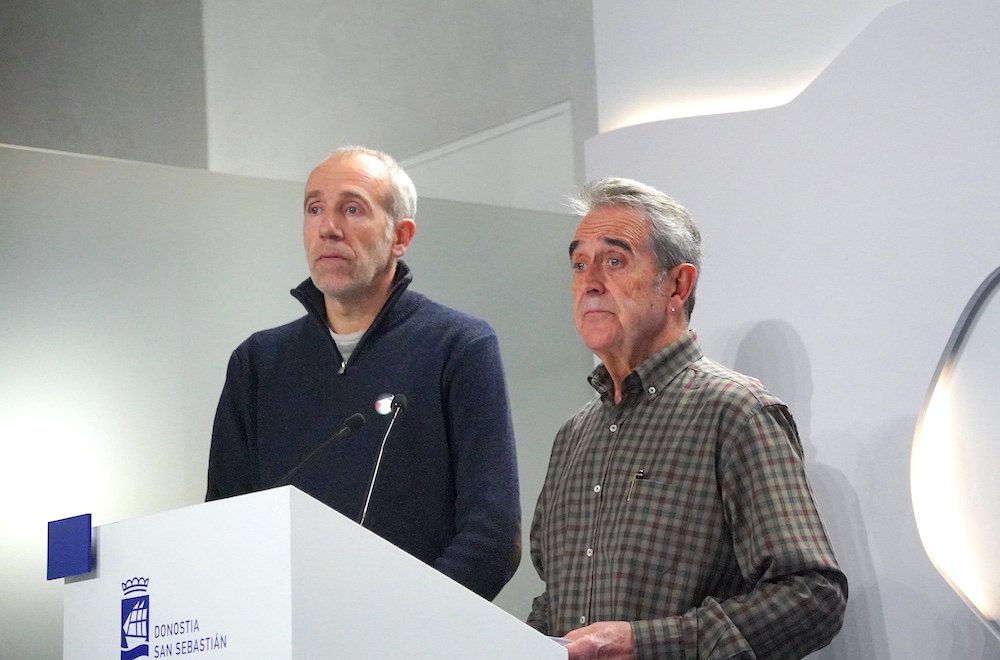Why do citizens forgive the corruption of the elites?
- It is known as Teflon syndrome. The rich and the political leader seem to have the skin of Teflon, the famous Teflon used in the pans of the kitchen: nothing is added to them, everything glides. Just as the reputation of bandit or criminal leads anyone to ruin, the power of the great lords does not suffer for it. Why will it be?

"If there is any jail / no barracks to punish the small thieves it is given a long shadow / (...) the aundiyas are seen free to walk...", sang long ago Jose Manuel Lujanbio Txirrita, the injustice has not healed a century later.
Sociologist Pierre Lascoumes and criminologist Carla Nagels have just published Sociologie des élites délinquantes, de la criminalité en col blanc à la corruption politique (The sociology of criminals, from savage criminality to the end of political corruption). They have tried to show how powerful people manage to avoid or adapt criminal laws to their interests.
Lascoumes and Nagels start from this situation that seems a sociological enigma. Among those who are in the elections there is a personality that judges are investigating, among other things for the funding of their campaign. Do you have a chance to win? Even though it is a lie, it will win for several points and, in addition, no one will question the victory. What's that like? Do those who voted against you judge the politician and those who commit common crimes differently? What is the difference? Just because they belong to different social classes?
In an interview given to the newspaper Liberation (“The elimination of the tests is done without interruption by the criminal elites”), Lascoumes explained that the research work has been developed by a multidisciplinary team of 15 people, based on more than 2,000 surveys and face-to-face interviews.
To begin with, the elites carry out their crimes with total disagreement n.Los small burglaries or aggressions are easy to see and are prepared to pursue them. They do not lose the time to enquire into the accounts of large companies or large companies. Crimes relating to the financing of political parties have entered into law very late.
The victims are also very different. In common crimes, the system is mobilized by the victims. On the other hand, in the case of elite crimes, it is often said that there are no victims, although it is true that the victims are more distant and blurred: the damage will occur in most or all of the citizens. In fact, the victims do not even realize that they have suffered damage.
“We have tried to show – says Lascoume – that this apparent citizen indifference is related to people’s relationship with the elites, that is, to the image they have of elected officials, employers of companies or senior officials. We have the feeling that the abuses they have committed in sending are part of their work.”
It is because of the image that the elites have always given of themselves: people who think about the well-being of all, who dedicate their life to the post... “They often embody their commitment to an almost religious discourse, to a kind of priest. It would seem like a brutal attack to question them, to show their interests and the double face they use. It’s not easy.”
The Minor Sins of the Powerful
He is a researcher who is conducting thousands of investigations into common crime. On the contrary, almost nobody in the criminality of the elites. Why?
Mr Lascoumes says that dealing with the dossiers of those with power in politics and economics is, above all, a denunciation of scandals. The organization of such theatres in the media on crime prevents the sociological understanding of the problems. But in addition, the crimes of powerful people tend to be much more complex to explain how the murders or the robberies of simple citizens are understood. As if it were not enough, researchers also have a certain fear, an ideological reluctance, to put their nose into the evil of the elites.
These sociologists care more about mechanisms than names, rather than the sparks of scandals about the description of social mechanisms. It recognizes the leadership of American sociologists, along the obvious path of Edwin Sutherland. In 1949 he published the White Collar Crime, censored by the editor, whose analysis remains useful in the background.
Sutherland would say what he wanted, but it still seems that the inadvertent step of elites' criminality is related to the distinction established by nineteenth-century criminologists, not only between simple people, but also between academics. The classic Enrico Ferri placed at the top of society the class that does not commit crime, organically honored, and on the bottom outsole of people without honesty.
In the event that the law is infringed, the offenders have committed the evil in themselves (in mal se), while those of the elite have to commit some sin that the laws do not admit (bad forbid). Innate maldities versus formal maldities that can be ignored. It will not compare pocket money theft with state fraud...
Sutherland explained that “as they are not denounced, the crimes of the fellows are little prosecuted and the citizens do not regard them as priorities. On the one hand, the ‘organically honest’ class and on the other slightly persecuted, in the end a kind of social learning occurs, that is, the ideological indoctrination that, in two centuries, has led to the exclusion of social penalties to those who, despite certain objectively erroneous conducts, go unnoticed”.
In the end, of the crimes that are perceived among the powerful, very few start from the criminal route. They are resolved through other negotiations. On rare occasions they come to trial and, even in case of conviction, the powerful condemned ones do not suffer the public shame any other punished citizen would suffer: the elites “have their restoration rituels to recover the good image, which they carry out by mobilizing economic, social and cultural capital”.
Investigators have paid more attention to the crimes of the powerful in times of crisis (1929, 1968...) and, on the contrary, since neoliberalism began to prevail in 1980, the criminality of the battered is much easier and more distracted. Violations of the law, tax fraud and corruption in public procurement have been divided into power points.
One last point: the greater inequality between employees in a company, the greater the tendency to break the law.
Rue 89 webgunetik hartutako argazkia 2001ekoa da: Jacques Chirac orduan Frantziako lehendakaria zena Parisko apelazio auzitegiaren protokolozko ekitaldi batean, epailez inguratua. Beste soziologo famatu batek, Luc Boltanskik, ikerlariei dei egin izan die aztertu ditzaten agintean daudenei batetik boterea erabili eta bestetik disimulatzea baimentzen dieten mekanismoak. “Klase menperatzaile baten kideek elkarrekin partekatzen dute jakintza komun bat besteei aitortu ezin dietena –doi-doi beren buruei aitortu diezaieketena– eta zera da: batetik, nahitaezkoa dela arauak egotea, zuzenbidea, prozedurak, erregelamenduak, eta abar, baina, bestetik, ezin dela ezer benetan probetxugarririk lortu (...) ezin dela ezertxo ere egin zalantzaz betetako mundu honetan arau horiek zuzen betez”. Antza denez, politikari ustelei botoa ematen dieten herritarrak ere ados daude joko horrekin.
Geroa Baiko lehendakari eta Nafarroako lehendakariorde izandakoa enpresa bati 2,6 milioi euroko diru-laguntzak ustez modu irregularrean emateagatik zegoen auzipetuta, Davalor auzia deiturikoan. Nafarroako Probintzia Auzitegiak erabaki du auzia behin betiko artxibatzea, legalki... [+]
EUR 904 billion. This is the annual cost of corruption in the European Union, according to a study carried out in 2020. Between 2008 and 2020, 3,743 cases of corruption were published in the media, of which 109 corresponded to Hego Euskal Herria. Of course, we will find more... [+]

























